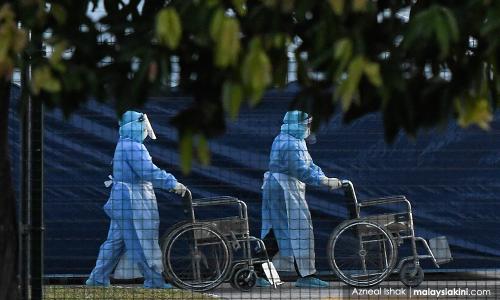Will we lose our humanity in this disease outbreak?
LETTER | It is only the month of February and the decade did not start well for us. The world is now gripped by an outbreak of a disease caused by an entirely new pathogen. The virus, dubbed the 2019-novel coronavirus or 2019-nCoV, first infected a human in Wuhan, China in December 2019. The Chinese government reacted by imposing a quarantine for the city of 11 million people. But by the end of January, the pneumonia-causing virus exploded into an outbreak involving more than 20 countries and the numbers are still increasing. The outbreak is poised to become, if not already, a global pandemic.
After the WHO (World Health Organisation) declared the outbreak a PHEIC (Public Health Emergency of International Concern), many countries imposed flight bans and border restrictions on Chinese nationals and/or anybody with travel history to any part of China within 14 days. Italy even declared a state of emergency of up to six months.
It is the prerogative of each country to impose such restrictions and as citizens, we must comply. However, WHO does not recommend border restrictions. In fact, studies show these restrictions do not work and might even have detrimental effects. It may seem logical to many of us that border restrictions will contain the disease and for governments, it is perhaps the only tangible step they can take to show that they are actually doing something.
These decisions, however, are driven by fear and self-preservation. It is the fear of a new disease for which we have limited data and understanding. Unfortunately, a public health issue of this magnitude is not only about the health aspect, but it also involves politics, economics and social factors.
Political ties can be repaired and economic landscapes can recover but we often forget about the social impact of disease outbreaks and effects of border restriction policies. For the past month, we have been reading stories about the xenophobic treatment towards the Asian community, where Chinese nationals or even individuals of Asian descent are being harassed in Western countries. Even within Asia, there are reports of restaurants refusing Chinese patrons, or homeowners not allowing Chinese tenants to enter their homes.
Similarly, at the epicentre of the outbreak, we hear heartbreaking stories of a disabled boy being abandoned because his caregiver was quarantined, a mother who begged authorities guarding the borders to take her daughter so the little girl can continue her cancer treatment, or rumours of people abandoning their pets in fear of them harbouring the virus. These are real stories by real people and whether we want to admit it, all of us are living in the same world. It makes sense to help and not ostracise each other.
Governments try to pacify the situation, calling for calm and understanding but these are also the effects of the same government actions and policies. Governments cannot expect citizens not to have a reaction, because it is a cascade effect and the public, too, are driven by the same fear and self-preservation. Only time will tell if these policies will work and if there are any lasting social impacts on the community.
However, policies driven by fear and self-preservation can only get us so far. In this crisis fast becoming global, what we need are not unilateral policies or actions that will further divide us. This will not be the last global pandemic we will encounter, especially in this highly-connected world we live in. There will be a time later for a post-mortem or criticism on how governments handled the outbreak.
What we need now, as declared by WHO in the spirit of PHEIC, is for global communities to work together, especially countries with weaker health systems and put together our resources and expertise to contain this outbreak.
Equally important, as citizens of the world, we need to show solidarity and support those are doing the good work of trying to contain the outbreak and those who are affected by it. It could easily be you, me or someone we know in that situation instead. In the end, we must remember, in our pursuit to save human lives, we must not lose our humanity as well.
The views expressed here are those of the author/contributor and do not necessarily represent the views of Malaysiakini.
RM12.50 / month
- Unlimited access to award-winning journalism
- Comment and share your opinions on all our articles
- Gift interesting stories to your friends
- Tax deductable
